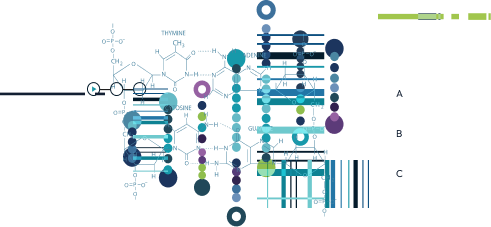News Center

PGx testing informs clinical management for cancer patients
- By Variantyx
- Posted in Clinical Education
Somatic testing of solid tumors has become the standard of care. Specific mutations in genes such as BRAF, EGFR, NTRK and others may help in the selection of targeted therapies that effectively attack the cancer. With >70% of cancer drugs in development representing precision medicines, targeted therapies are going to continue to grow1.
Pharmacogenomic (PGx) testing for germline (inherited) variants can have a significant impact on drug safety and efficacy. Oncologists accustomed to utilizing genomic tumor profiling for treatment of solid tumors are well positioned to lead adoption of routine PGx testing for safer, more effective and better informed cancer care.
Routine PGx testing can identify variants that impact metabolism of certain drugs. Increased metabolism can reduce the amount of drug available, leading to reduced effectiveness. One example is reduced efficacy of tamoxifen, commonly used for the treatment of ER+ breast cancer. Conversely, decreased metabolism can increase the amount of drug available, potentially leading to toxicity or other adverse drug events (ADEs). Patients benefit from PGx testing, but so do payers as documented in a recent study that calculated a $7,000 reduction in per patient direct medical charges over the course of 32 months2.
Last month (June 2023), the American Cancer Society Cancer Action Network (ACS CAN) released a set of recommendations promoting equitable PGx testing in cancer care3. Endorsed by a dozen different organizations, the recommendations focus on how the FDA, genetic testing labs, insurance agencies, clinical societies, researchers and others can address PGx-related challenges impacting patient care.
In brief, they recommend:
- Incorporating PGx testing recommendations into treatment guidelines
- Enacting policies to ensure coverage for PGx testing
- Designing PGx tests to cover all variants supported by high quality evidence
- Requiring that drug labels be regularly updated to reflect growing knowledge of PGx-related safety issues
- Diversifying oncology research and clinical trial populations for increased representation of individuals with non-European ancestry
At Variantyx, we’ve been leading the way in PGx testing for cancer patients as the only genetic testing lab to incorporate PGx analysis into all solid tumor genomic profiling tests. To date, our OncoAlly® Solid Tumor Analysis tests nine genes with high quality evidence for interaction with 14 different cancer drugs. Documented interactions range from increased risk of neutropenia and related issues to increased risk of hepatotoxicity and cardiotoxicity. For more details, browse the table of included gene-drug interactions.
Because we utilize a whole-genome based platform that (1) analyzes the entire gene and (2) detects multiple variant types including SNVs, indels and CNVs, we already meet the recommendation to cover all variants supported by high quality evidence, and in fact exceed the testing performed by other labs. The combination of tumor genomic profiling and onco-pharmacogenomic analysis produces a personalized report with prioritized therapy recommendations – putting the most comprehensive, accurate view of available therapy options into the hands of a patient’s tumor board.
References
- Personalized Medicine Report 2020
- Jarvis et al. J Pers Med. 2022 12(3): 421. doi: 10.3390/jpm12030421
- Equitable Discovery and Implementation of Pharmacogenomic (PGx) Testing in Cancer Care: Recommendations
